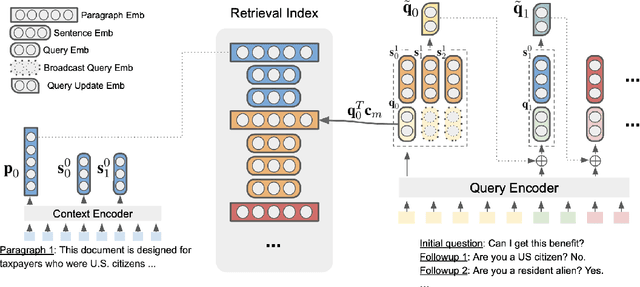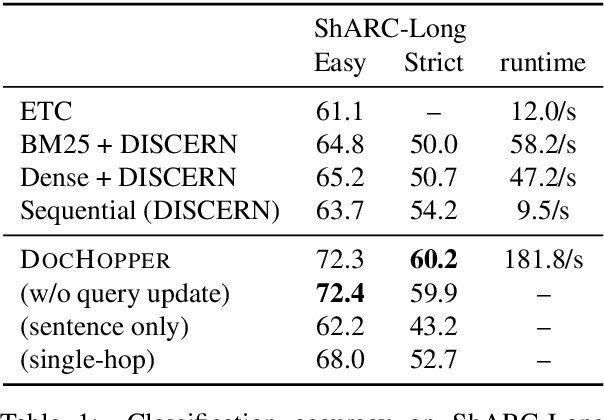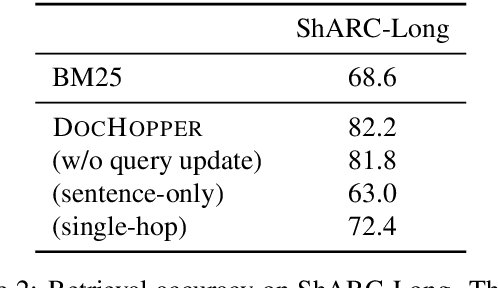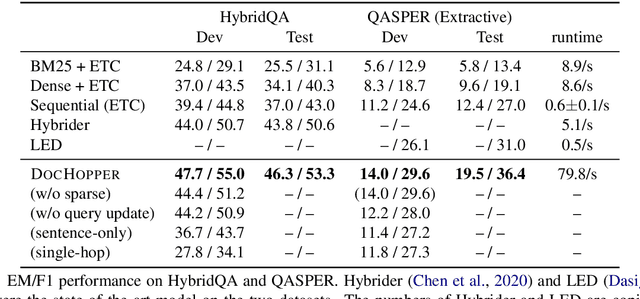End-to-End Multihop Retrieval for Compositional Question Answering over Long Documents
Paper and Code
Jun 01, 2021



Answering complex questions from long documents requires aggregating multiple pieces of evidence and then predicting the answers. In this paper, we propose a multi-hop retrieval method, DocHopper, to answer compositional questions over long documents. At each step, DocHopper retrieves a paragraph or sentence embedding from the document, mixes the retrieved result with the query, and updates the query for the next step. In contrast to many other retrieval-based methods (e.g., RAG or REALM) the query is not augmented with a token sequence: instead, it is augmented by "numerically" combining it with another neural representation. This means that model is end-to-end differentiable. We demonstrate that utilizing document structure in this was can largely improve question-answering and retrieval performance on long documents. We experimented with DocHopper on three different QA tasks that require reading long documents to answer compositional questions: discourse entailment reasoning, factual QA with table and text, and information seeking QA from academic papers. DocHopper outperforms all baseline models and achieves state-of-the-art results on all datasets. Additionally, DocHopper is efficient at inference time, being 3~10 times faster than the baselines.
 Add to Chrome
Add to Chrome Add to Firefox
Add to Firefox Add to Edge
Add to Edge